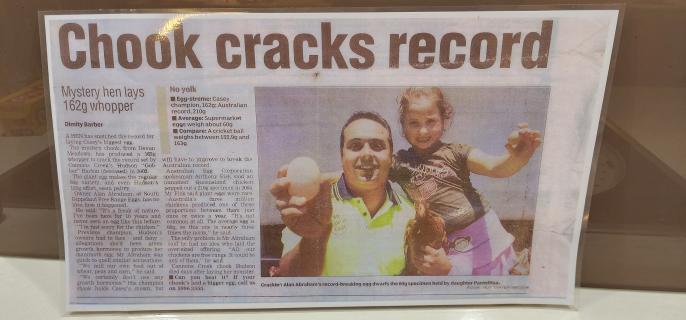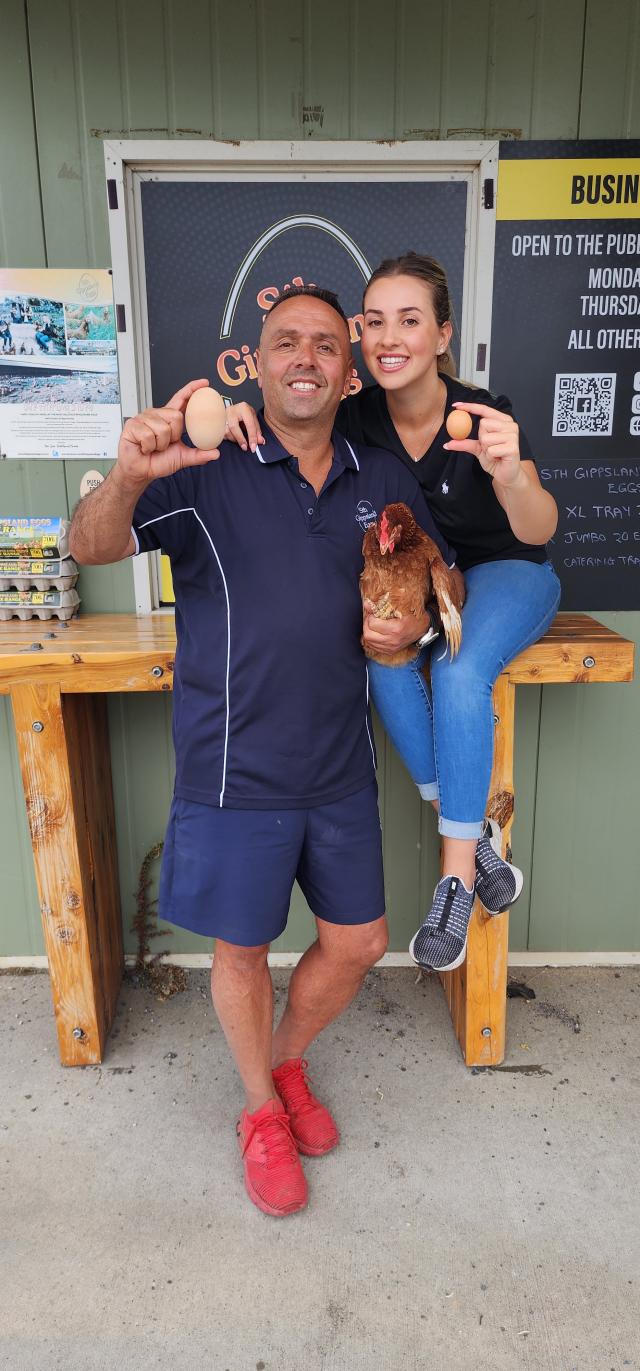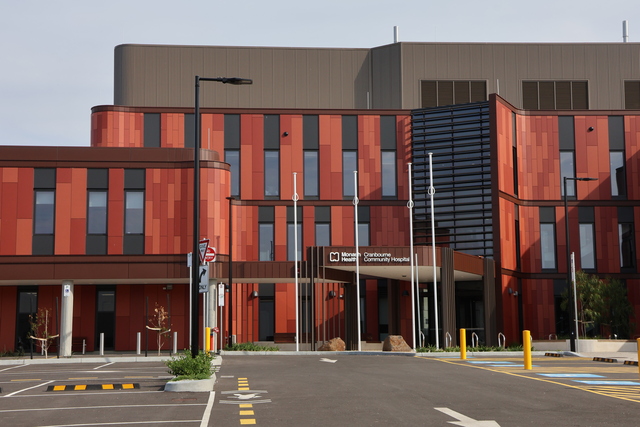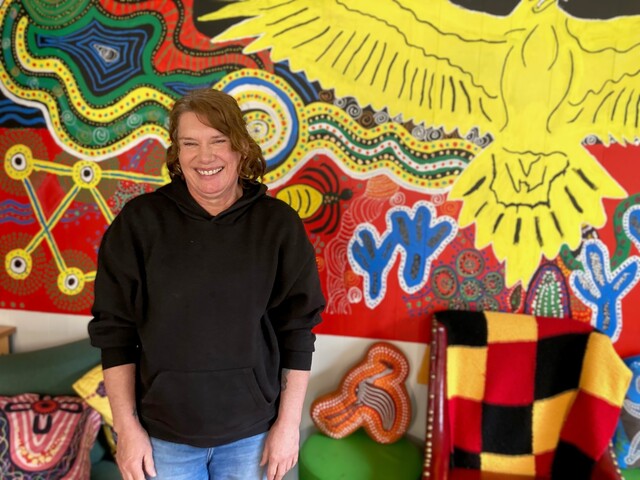A Devon Meadows free range egg farm could have cracked the record for Casey’s largest egg, after one of their hens laid a super-sized offering last week.
South Gippsland Eggs owners Gina and Alan Abraham said the giant egg was found by a staff member last week, tipping the scales at 165g – almost triple the size of a standard egg.
The egg farmers were dealt with a second surprise when Mr Abraham cracked the mutant egg on the barbecue to discover a second egg, shell and all, inside.
“We put footage of Alan cracking the egg open on our Facebook page and we’ve had a ridiculous amount of attention from it,” Mrs Abraham said.
“It’s gone viral!”
The Devon Road farm is home to 40,000 chooks, meaning it was quite the achievement for the hen responsible.
“We have no clue which hen it was,” Mrs Abraham said.
While a scientific explanation for the super-egg is not obvious, Mrs Abraham puts it down to “happy chooks”.
“I think it’s just happy, clucky chooks. Maybe the nice weather has been encouraging them to eat a fraction more,” she said.
“Their egg ducts just get a bit happy sometimes I guess.”
It’s not the first time South Gippsland Eggs have met with an egg of monster proportions on the farm.
Mrs Abraham estimates they have come across about half-a-dozen exceptionally large eggs since she took over the family business from her parents in 1999.
“We’ve seen a few over the years, we’ve had some triple-yolkers before…we’ve been told to go and buy a Tattslotto ticket, it’s crazy,” she said.
One of the farm’s hens produced a 162g “whopper” 18 years ago, which was documented by local media next to a photo of Mr Abraham and daughter Pantelitsa, who was five years old at the time.
Mrs Abraham said it was a slight case of deja-vu as the family recreated the photo last week with their now-23-year-old daughter.
“I don’t know what the other farmers are doing, but I was born on the farm and it’s more of a common occurrence compared to 20 years ago.”








